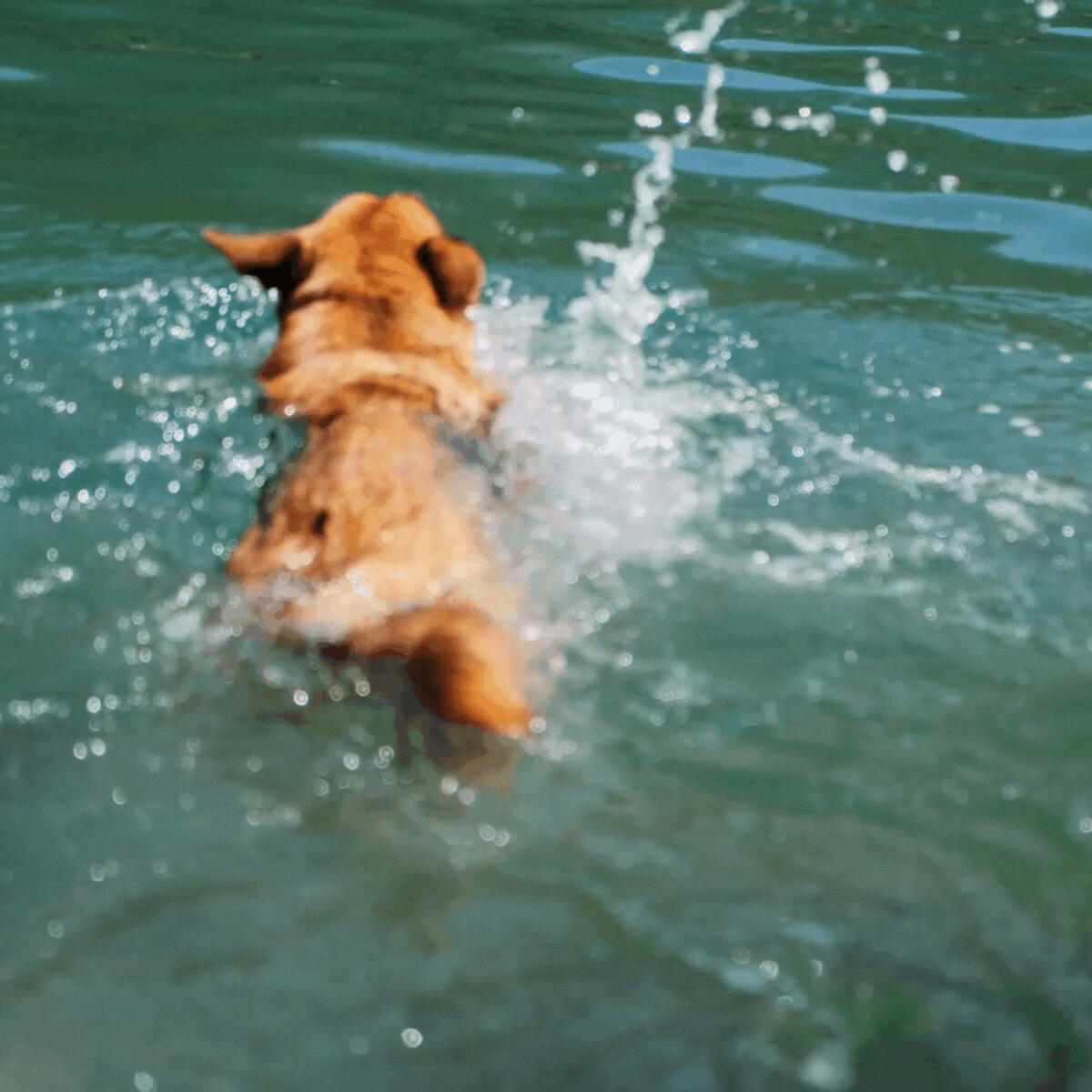The sight of a dog gleefully splashing in a pool or gracefully gliding through the water is a delightful one. However, have you ever wondered if all dog breeds possess an innate ability to swim? It’s a common misconception that every dog is a natural swimmer, but the truth is more nuanced. Ready to dive deeper into the fascinating world of canine swimming abilities? Pun intended! So, let’s embark on this journey to unveil the truth. Do all dogs know how to swim?
To understand a dog’s affinity for swimming, we must look back to its evolutionary history. Dogs, as descendants of wolves, share a common ancestor with these majestic creatures, who are known for their exceptional swimming skills. Wolves are adept swimmers, capable of traversing lakes and rivers with ease. As dogs were domesticated and bred for different purposes, their natural swimming instincts remained to varying degrees.
While dogs may have an inherent inclination to swim, their actual swimming ability can vary significantly based on several factors. One crucial aspect is breed predisposition. Some breeds, such as the Labrador Retriever, Newfoundland, and Chesapeake Bay Retriever, possess an inherent affinity and aptitude for swimming. Their physical characteristics, such as webbed paws, water-resistant coats, and strong musculature, enhance their swimming prowess. On the other hand, breeds with shorter legs or heavier body structures may face more challenges in the water.

Beyond breed-specific traits, environmental factors play a significant role in shaping a dog’s swimming ability. Early exposure to water during their critical socialization period, typically between 3 and 14 weeks of age, greatly influences a dog’s comfort and skill in the water. Puppies that have positive experiences with water during this period are more likely to become confident swimmers in adulthood.
Additionally, a dog’s exposure to different aquatic environments can affect their swimming capabilities. Natural instincts may come to the forefront when a dog encounters calm bodies of water, like lake or pool water. However, when faced with turbulent waters, such as rough seas or fast-flowing rivers, even proficient swimmers may struggle. Therefore, while some dogs may possess the ability to swim, it’s important to consider the specific environment in which they are expected to swim.
Swimming skills can be invaluable for dogs, offering numerous physical and mental benefits. Swimming provides an excellent low-impact exercise that helps maintain cardiovascular health, muscle tone, and overall fitness. It is especially beneficial for older dogs or those with joint issues, as the buoyancy of water reduces stress on their joints. Furthermore, swimming can be a fantastic form of mental stimulation, promoting a sense of adventure and discovery.
If your furry friend hasn’t had much exposure to water or is hesitant about swimming, you can take steps to introduce them to this activity safely. Gradual introduction to shallow water before moving on to deeper water, positive reinforcement, and patience are key when teaching a dog to swim. You can also find lots of different dog owner techniques and tips online and learn about positive swimming experiences for both you and your canine companion.
While every dog isn’t a good swimmer, many do exhibit a natural inclination towards water. The extent of their swimming skills is influenced by factors such as breed predisposition, early exposure to water, and the specific aquatic environment. Whether your dog is a swimming enthusiast or a reluctant paddler, ensuring their safety and providing opportunities for water-based activities can enhance their overall well-being. So, embrace the joy of swimming with your furry friend, knowing that a combination of nature and nurture influences their aquatic adventures.

By shedding light on the intricate world of canine swimming abilities, we hope to dispel the myth that all dogs possess an innate swimming talent. Understanding the factors at play allows us to appreciate our canine friends’ individuality and cater to their unique needs when it comes to water-based activities. Remember, whether your dog becomes a strong swimmer or prefers to stay on dry land, their love and companionship remain constant, making them the most special gift for every pet parent.

